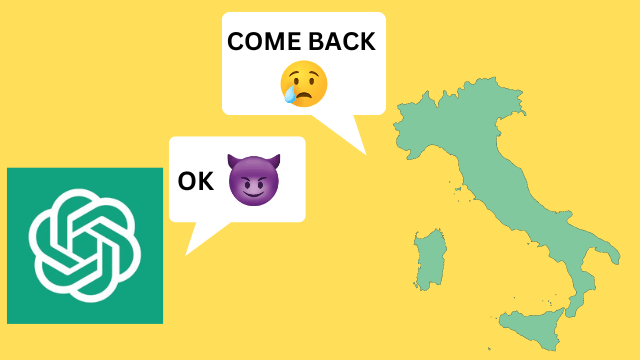OpenAI was allowed to relaunch ChatGPT in Italy after making changes demanded by Italian data privacy regulators.

ChatGPT was originally banned in late March after the Italian Data Protection Authority complained that ChatGPT did not comply with GDPR and that ChatGPT provided inappropriate information to minors.
OpenAI has now implemented most of the changes demanded by Italian regulators:
- OpenAI created a form that allows EU citizens to request their personal data be removed from ChatGPT responses.
- OpenAI published a disclosure of the personal data that is processed for ChatGPT’s training, and a reminder that everyone has a right to opt out.
- OpenAI added an age gate in Italy that asks users to confirm that they are either at least 18 years old OR are at least 13 years old and have obtained consent from a parent or guardian, before that person can use ChatGPT.
In response, Italian regulators issued a temporary approval for ChatGPT to be again be offered in Italy again, with the condition that OpenAI continue to work on implementing additional data protections into ChatGPT over time.
“The Italian SA acknowledges the steps forward made by OpenAI to reconcile technological advancements with respect for the rights of individuals and it hopes that the company will continue in its efforts to comply with European data protection legislation.”
Announcement by Italy’s Guarantor for the Protection of Personal Data
This is still just the beginning of OpenAI’s regulatory conflicts though as governments around the world are grappling with how to balance technological advancement with the legal quagmire of AI.